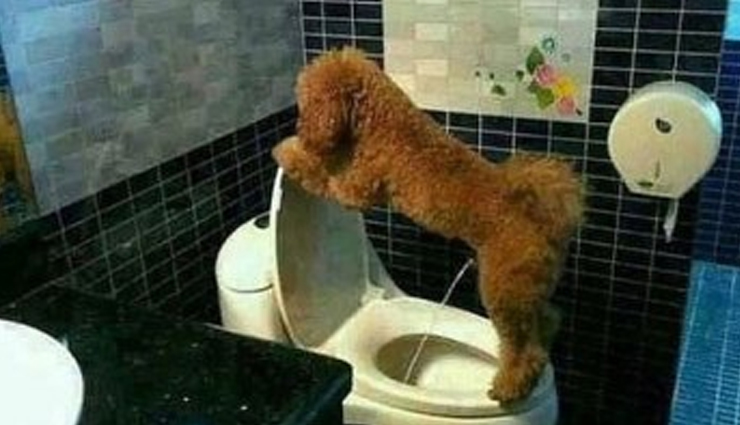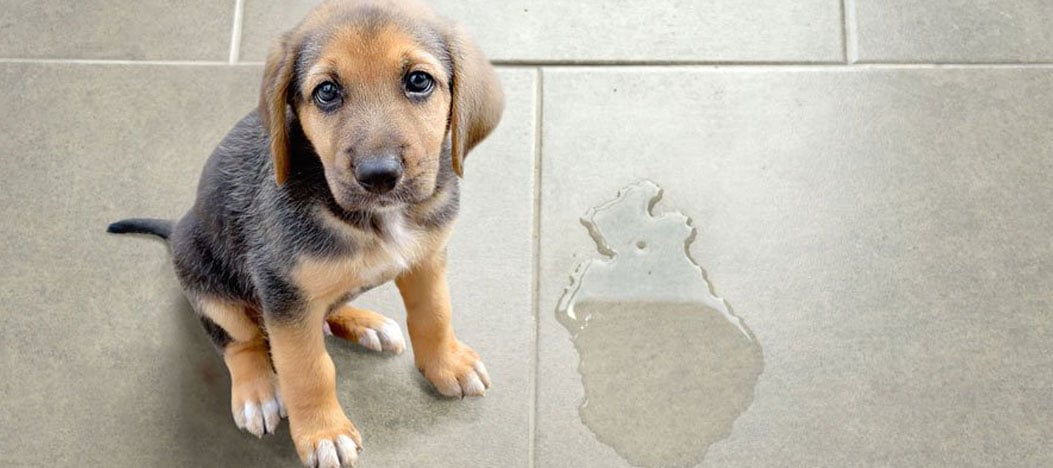How To Stop Dogs Peeing In House
Table Of Content

Your vet can perform blood and urine tests to identify the potential for diabetes. Improved diet, exercise, and insulin injections are the most common treatments for diabetes. Cushing's disease is characterized by increased thirst, increased urination, and elevated appetite among other symptoms. Also known as hyperadrenocorticism or Cushing's disease, the condition results from the overproduction of the hormone cortisol. Excess cortisol weakens your dog's immune system, predisposing them to other diseases and infections. The good news is there are usually easy fixes to stop a dog from peeing in the house.
Dog Behavior Problems: House Soiling
Dogs affected produce large volumes of diluted urine, which prompts them to drink large amounts of water to compensate. However, Dr. Aona adds that odor eliminators don’t necessarily stop the behavior, especially if there is an underlying medical reason for your senior dog peeing in the house. It may also indicate that they are leaking urine in strange places, such as where they are sleeping. Urinary incontinence shares symptoms with related medical conditions in dogs. Your dog may drink lots of water when the weather is hot or after strenuous exercise. However, prolonged high water intake could signify a medical issue, so you should consult your veterinarian for a proper analysis of the situation.

Female vs. Male Incontinence
Some dogs experience separation anxiety when their owners leave them home alone. Barking, destructive behavior, obsessive pacing and relieving themselves indoors are a few of the symptoms dogs show. Have you noticed your dog peeing when they're approached by people or when they hear loud noises? Do they take on submissive postures such as crouching, tail tucking or exposing their belly? These are signs of submissive urination, which is often a result of an anxiety disorder or a history of harsh treatment.
Find food that fits your pet’s needs
Bladder stones, tumors, or polyps in the bladder, and abnormalities in a female dog’s anatomy may also cause cystitis. Dogs with cystitis frequently squat, strain, and produce small amounts of urine. Pyometra frequently affects middle-aged or senior intact female dogs within one or two months after the end of a heat cycle, but it can also happen in young dogs. If a female dog isn’t bred, the uterus lining thickens because of hormonal changes during and following heat, sometimes forming pockets where bacteria may develop and lead to pyometra. Symptoms include drinking and urinating more than normal and blood-stained vaginal discharge.
SARDS in Dogs: What To Do If Your Dog Suddenly Goes Blind - Daily Paws
SARDS in Dogs: What To Do If Your Dog Suddenly Goes Blind.
Posted: Mon, 28 Nov 2022 08:00:00 GMT [source]
This behavior seemed to coincide with a neighbor's dog walking past the house daily. Investing in training aids like Non Squeakty Dog Toys can help provide your pet with a constructive outlet for their energy. Positive reinforcement is a vital tool in correcting unwanted behaviors. The first step to stopping your dog from peeing in the house is to identify the cause. These are just a few more reasons to make sure your dog is not peeing inside the home.
A fearful dog may resort to inappropriate elimination of urine around the house, and chewing of items among other things. Moving houses or outdoor disturbances may also make your dog mark the new territory. Instead, the affected dog will just resort to passing urine while seated or while struggling to get their way out of the house. At home, you could consider trialing doggy diapers to see if your dog will tolerate them. The water-heater closet is very close to the porte cochere and driveway, if that makes any difference. I think the rat remains appeared overnight because I have been in my yard frequently due to the shelter-in-place, and would likely have seen it in the days before.
Child Peeing on The Floor? Intentional or ADHD Symptom? - PsychCentral.com
Child Peeing on The Floor? Intentional or ADHD Symptom?.
Posted: Wed, 01 Jun 2022 07:00:00 GMT [source]
Instead of punishment, focus on positive reinforcement, reward good behavior, and redirect your dog’s attention to appropriate potty areas. [ad_1]Having a dog is a wonderful experience, but one of the biggest challenges that many dog owners face is dealing with their furry friend peeing in the house. It can be frustrating and stressful to constantly have to clean up messes and try to train your dog to go outside.
You can ensure that your dog is getting enough physical and mental stimulation by monitoring these metrics. Consider a story about Bella, a Boxer who had always been perfectly behaved. Once the family brought home a new baby, Bella started peeing inside the house. Tom, a proud owner of a spirited terrier named Sparky, noticed that Sparky had taken to marking the living room furniture.
A dog with kidney disease may urinate in large quantities, as the disease affects the body’s ability to eliminate toxic waste. Several signs that a dog has liver disease are fluid retention in the abdomen and excessive urination and thirst. It can be perplexing to find your fully housetrained old dog having accidents suddenly, but this behavior is usually explainable. Being attuned to your pet's emotions, recognizing signs of stress or discomfort, and responding with empathy can often correct behavioral problems like peeing inside. The experiences of other pet owners can provide insights and solutions. Pet blogs, forums, and community groups are excellent resources for sharing experiences and learning from others.
Once the stones are removed, they are analyzed and identified to determine a cause. Your dog will likely be prescribed a prescription food to prevent future buildup. If your dog is at risk for chronic urinary stones, they may be on a prescription diet for the rest of their life. Early treatment is critical if your dog is suffering from kidney failure or liver disease. Kidney disease hampers the kidneys' ability to efficiently filter waste products from the blood.
She knew to go outside and quickly learned to use our dog door, but she does pee in a specific spot. She knows she shouldn’t have because her behavior is indicative, but she does it. Experts advise pet parents to seek professional advice rather than try to figure out the cause on their own. However, observing your dog’s behavior patterns and reporting your findings to your veterinarian can be helpful. Regular veterinary check-ups are vital, but Fi dog collars add an extra layer by monitoring your dog's health metrics. Sudden changes in behavior might be tied to health issues, and Fi's data can help you catch problems early.
You will need to visit your vet to determine which of these conditions might be behind their inappropriate urinating. They will probably start by looking for a urinary tract infection, as this is one of the most frequent health problems in dogs. Dogs use their pee to mark their territory, so if they are peeing inside, they are probably letting someone know that the house is theirs.
Remodeling the house, especially with workmen coming and going, can lead to house-training problems. Even a new carpet with different smells can cause some dogs to leave their scent by urinating on it. Puppies are more susceptible to behavioral peeing but they usually outgrow this habit.
It’s important to consider the possibility of underlying medical issues when dealing with a dog who is peeing in the house. Conditions such as urinary tract infections, bladder stones, or diabetes can cause increased urination and accidents indoors. Most of the time, there is a medical reason why your senior dog can’t hold pee. Dr. Caos says common issues include urinary tract infections (UTIs), bladder stones, hormonal imbalances, and kidney disease. Your dog could also have arthritis or another painful ailment that makes it difficult to physically reach an appropriate urination place.
Use positive reinforcement, reward good behavior, and encourage your dog to communicate their needs effectively. With consistent training, your dog will learn to signal when they need to go potty outside. These urinary issues often occur with no other underlying medical issue present. A urinary tract infection (UTI) occurs when bacteria enters the urinary tract through the urethra and causes inflammation and pain. While most dogs are fully potty-trained well before they are considered an adult, it is not uncommon to see setbacks in housetraining that can lead to urinary accidents.
Comments
Post a Comment